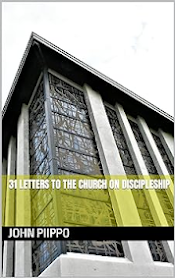Church leaders either:
1) Make decisions on their own, without consulting God; or
2) Meet with God to discern His good and perfect will.
When our church's leaders meet, we ask questions like these.
"What is God saying to you, about you?"
"What is God saying to us, about us?"
"What is God doing in us?"
"What do you discern God is doing and saying?"
We are a discerning community, not a group of decision-makers. This is exciting, empowering, and non-striving. We are not trying to make things happen.
Here are some things about discernment that are important to us.
Defining “discernment”
-
Discernment is the
capacity to recognize and respond to the presence and the activity of God—both
in the ordinary moments and in the larger decisions of our lives.
Discernment is different than
“decision making.”
This is not about
“decision-making.”
God makes decisions
and leads; you and I are to discern what God has decided.
Biblical examples of discernment.
1 Kings 3:9-14 – Solomon asks God
to give him a “discerning heart” to govern God’s people, and to tell the
difference between right and wrong.
Psalm 119:125 – The psalmist prays: I am your servant; give me discernment that I may understand your statutes.
Proverbs 18:15 - The heart of the discerning acquires knowledge, for the ears of the wise seek it out.
Daniel 2:21 - God gives wisdom to the wise and knowledge to the discerning.
Hosea 14:9 - Who is wise? Let them realize these things. Who is discerning? Let them
understand.
The ways of the Lord are right;
the righteous walk in them,
but the rebellious stumble in them.
1 Cor. 2:14 - The person without the Spirit does not accept the things that
come from the Spirit of God but
considers them foolishness, and
cannot understand them because they are discerned only through the Spirit.
How do I become a spiritually
discerning person?
Cultivate intimacy with God.
Discernment is a function of intimacy.
The rule is: The greater the intimacy with
God, the more you have discernment.
“Discernment” is a fruit, an inevitable byproduct, of a presence-driven Life.
To discern the mind and heart of God:
1. Meet regularly with
God.
2. Engage with scripture.
3. Root yourself in a community that does the same.
If you don’t have time
for this, you will
not have spiritual discernment. Prayerless
people dwell in the land of unfamiliarity.
There are three Greek words we translate as "discern." The first is in Rom. 12:1-2:
Offer your
bodies as a living sacrifice, holy and pleasing to God—this is your true and
proper worship. Do not conform to the pattern of this world, but be transformed by the renewing of your mind. Then you will be able to discern and approve what
God’s will is—his good, pleasing and perfect will.
This includes not only
the mind of each individual but also the corporate mind.
What is fundamentally needed is mind-renewing transformation.
We must live in the rivers of constant
spiritual formation and transformation, in order to discern what the will of
God is. This is what the whole "church" thing is about.
The Greek word we translate as "discern" in Romans 12 is ἀνακρίνω,v \{an-ak-ree'-no} - anakrino
1) examine or judge 1a) to investigate, examine, enquire into,
scrutinise, sift, question 1a1) specifically in a forensic sense of a
judge to hold an investigation 1a2) to interrogate, examine the
accused or witnesses 1b) to judge of, estimate, determine (the excellence
or defects of any person or thing
A second Greek word is in 1 Cor. 12:10 -
to another miraculous powers, to another prophecy, to another distinguishing between spirits, to another speaking in different kinds of tongues, and to still another the interpretation of tongues.
Here the word is διάκρισις,n \{dee-ak'-ree-sis} - diakrisis
1) a distinguishing, discerning, judging
A third word is in Phil.
1:9-11:
9 And this is my prayer: that
your love may abound more
and more in knowledge and depth of insight, 10 so that
you may be able to discern what is best and may be pure and blameless for the
day of Christ, 11 filled with the fruit of
righteousness that comes
through Jesus Christ—to the glory and praise of God.
Here the Greek word is δοκιμάζω,v \{dok-im-ad'-zo} - dokimazo
1) to test, examine, prove, scrutinise (to see whether a thing is genuine
or not), as metals 2) to recognise as genuine after examination, to
approve, deem worthy
How to become a community of
discernment.
Teach your
people how to abide in Christ.
If you are
a pastor, you must give up control. It’s not about you. It’s about what God is saying and doing in your people.
A Discerning Community is a
Movement, not an Institution.
We discern what the Spirit is saying to us, and then move with the Spirit.













